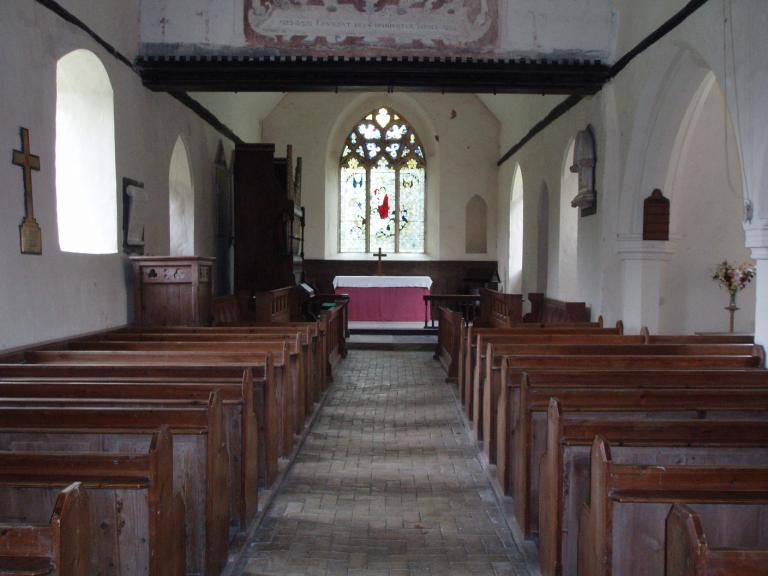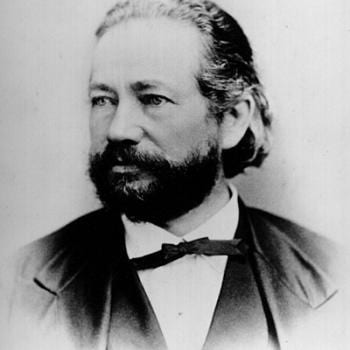
I’ve written before about how, like the United Methodist Church, the Southern Baptist Convention is facing almost certain fracture. At the time, I attributed this to certain denomination traits that would/will make the SBC vulnerable to then-emerging hot-button issues. Nine months ago, a conservative cadre of UMC of bishops called for denominational separation over issues of sexuality and gender. I argued then that the UMC was a look into Galadriel’s mirror for the SBC, presenting one of several possible futures.
Shortly thereafter, the Conservative Baptist Network sprouted up representing an in-house SBC coalition dedicated to combating certain theological currents (egalitarianism, social justice ideology, Revoice-esque drifts on sexuality, etc.). But this coalition seems to present no threat of, nor desire to, split.
My basic prediction still stands, viz., present friction within the SBC (and PCA) are really symptoms of hermeneutical conflict; weak institutional mechanisms of doctrinal control, a lax confession tradition (one which allows for too much diversity of opinion to flourish), and a big tent attitude (either resulting from or contributing to the lax confessional tradition) leave the SBC with no effective tools to combat internal strife. If the reader will endulge a self-quotation:
In his magisterial study of New England Puritanism, Perry Miller recounted the string of controversies over the course of the first three decades of the Massachusetts Bay Colony. With each controversy, the weaknesses of the Congregational Way were incrementally exposed.
In the antinomian crisis and the Anne Hutchinson trial (1637), New England Congregationalism “achieved unity by exiling Dissenters.” In 1648, at the Cambridge Synod, the clergy simply sidestepped the thorny questions on everyone’s mind. In 1662, with the establishment of the Half-Way Covenant, the synod won by “brute force of majority vote.” Slowly, the New England establishment began to realize that it had no “machinery” for navigating controversy, expelling unsound doctrine, and bolstering the established order. That the Errand into the Wilderness, as Miller called it, hung on for so long, was due to the genuine zeal of the founders, the broad doctrinal agreement during most of the century, and the relative insulation from the hostile political climate abroad. Nevertheless, as controversy mounted, weaknesses were exposed. As Miller suggests, without the proper institutional machinery for both handling disagreement and maintaining orthodoxy, a church will not long continue. This proved all the more true in the 1740s with the advent of the Great Awakening, a movement that split Congregationalists churches right down the middle.
Like the New England Congregationalists, I fear the SBC, by nature of their polity and culture, do not now have the institutional glue to weather the present storm. For these reasons—a lax confessional tradition and weak institutional enforcement mechanisms—I am not confident that the SBC will continue through the present controversies without some significant fracture. I pray that I eat Baptist crow on this one, but I doubt it.
And as I see it (and state in the article), the most pressing issues within the SBC (i.e. egalitarian v. complimentarian debate, and the conflict stemming from Resolution 9 over Critical Race Theory and social justice ideology) are the result of unstable hermeneutics (which, in turn, results from the weak institutional mechanisms and lackluster confessionalism). Resolution 9 itself evidenced the nature of the conflict. Everyone affirms the infallibility and authority of Scripture. Where things get hazy is in the interpretation and application process. As John Owen pointed out long ago regarding the Socinian (i.e. radical Biblical literalists and one of the first internal heresies dealt with by Protestantism), all parties were in agreement as to the foundational source of authority, its reliability and veracity. The question was, what does it mean? Peruse articles at the Witness by Jemar Tisby (I’ll return to him momentarily) or Jarvis Williams (of SBTS) and you’ll see what I mean. The conflict back in July surrounding Elizabeth Mburu’s lecture about contextualized hermeneutics evidences this further. (I think Mburu was wrong on several levels but the point here is not the content of her lecture but rather what it shows us about the internal dynamics of the SBC right now).
***
This is where big evangelical denominations are at; they just don’t realize it yet. They still think there’re in the battle for the Bible rather than in the midst of a hermeneutical spiral. Confidence in a stable meaning is being eroded by inter alia post-modern (deconstructionist) readings (i.e. over-zealous obsession with the contextualization problem). The problem always comes in when it comes to “application” and “illustration.” It is pretended that contextualizing these stages of exegesis do not affect the meaning, but they inevitably do.
As stated my general prediction still stands. Denomination never fair well in Great Awakenings; there is always fracture. There is always realignment and the emergence of new sects. And, in America, each Awakening has contributed to (in conjunction with other cultural forces, no doubt) the further personalization and emotive-ization of spirituality. The Great Awokening will prove no different. Its fundamentally religious and even Christian character cannot be lost upon us. As Tom Holland writes in his great new book, Dominion, wokeness could have happened anywhere else but in the west, where the Christian worldview has shaped society. (This contradicts, a bit, what Gene Veith has said here, but not too much).
But more curious is the phenomenon of Christians layering critical social justice over top their Christianity. They are not abandoning Christianity to join a new sect (although social justice outside of the church certainly qualifies as such) but rather employing it as a useful addendum to their faith, plugging theological holes, as it were. This makes the movement seem more like the previous Christian social enthusiasms of the Second Great Awakening of the 19th century (which had massive impact on the formation of American Christianity) than it does like Mormonism or Scientology which sprouted up around the same time but for markedly different reasons. In another sense, what we’re seeing is Christian embrace of a new, emerging civic religion. Obviously, no single historical analogy gets the job done when discussing such a volatile phenomenon. But for my money, the 19th century is where to look. There you’ll find populist movements, financial panic, public health crises, the rise of new religious sects, but also new enthusiasms within established religion– and, of course, there was the matter of slavery which, more or less, accounted for the national polarization almost along the same lines as is being experienced today. Let’s hope the climax and defining event of the 19th century (i.e. the American Civil War) isn’t the same as that of the 21st.
***
Like so many other things, COVID-19 has exasperated existing problems and expedited cultural trajectories. The same is true in this context. Hence, my prediction must be altered slightly. I no longer believe that denominational splits will be led by a conservative exit but rather by a social justice one. And it will not be because internal mechanisms of doctrinal control and conflict resolution fail per se but rather because cultural anxieties will dictate the attitudes of church members and lead them to throw up their hands in impatience and disgust. (There is also a stark generational divide both within and without the church).
(My one, potentially self-defeating caveat is the at the SBC uniquely has several large seminaries at stake. The battle over those, along with COVID-related pressures on higher education, may not look quite like the conservative resurgence back in the 1980s which partially took place on campuses. And this could mean that some dissenters choose not to leave but rather influence from within– a sort of social justice ralliement).
Caveats notwithstanding, many dissenters, whether for egalitarian or race-related reasons (the two often go hand-in-hand in terms of opinion), will leave the Big Eva churches. There is evidence of this already happening.
John Onwuchekwa’s departure from the SBC is one recent example (Christianity Today reported on it here). Per a recent Washington Post article, the central issues for Onwuchekwa– that led to his feeling unwelcome in the SBC– were Al Mohler’s endorsement of Trump (after not having done so in 2016), and the unwillingness of SBC leadership to sufficiently respond to the current moment like others have. “It was like, wait a minute,” said Onwuchekwa, “I think the rest of the world is getting it… In order to show solidarity with disenfranchised communities, you can’t have moderate steps.” It is the sense that evangelicals sold out to Trump (a statistically unsubstantiated belief) and are not sufficiently (radically) interested in the race discussion sweeping the country– at least not that kind of discussion, with the presently dominant tenor and expressed aims.
Before Onquchekwa joined the “Blexit” there was Lawrence Ware’s famous New York Times op-ed which, unofficially, began the Black exodus (at least from the SBC) (c.f. Dwight McKissic’s response to Ware in the Washington Post). Other commentators (many of whom, like Tyler Burns, Jimmy Butts, and Ally Henny, are affiliated with the Witness) call for a Black exodus from “white” churches on a regular basis in an increasingly unforgiving tone. The master’s tools cannot be used for liberation, it is said. A recent tirade by Burns on Pass the Mic, in which departure for white spaces is equated with the refusal to “negotiate with one’s dignity,” is a good representation of this position. Onwuchekwa went on Pass the Mic just this week to discuss his decision to leave the SBC, reiterating therein his announcement from several months ago, but adding more insight into his reasons for the decision.
The social justice-minded, or those BBIPOC’s who no longer feel comfortable in denominations that are not sufficiently dedicated to social justice (I’m assuming that “racial reconciliation” is an outdated term at this point) or who feel “unsafe” in a post-Trump evangelicalism, are the ones exiting, not the conservative stalwarts. This goes against any narrative that would suggest that social justice warriors are taking over established denominations. Instead, they are leaving. The take-over only seems real because of those remainers who are still debating the issue but are too afraid to take the plunge.
***
But more importantly, as alluded to already, the trajectory of the rhetoric surrounding the social justice issue (doubtless the most polarizing topic in America right now) suggests that we have completely blown by the stage of internal deliberation and compromise and are arriving at a more explosive point. The discussion has recently shifted from questions of how denominational legacies can be salvaged or critiqued for the sake of moving forward together to one that paints established denominations as not worth saving, maybe even corrupt in their very essence. This is the conviction of recent books like White Too Long by Robert Jones (reviewed by Tisby here): (American) Christian theology was made by racists, for racists and, therefore, must mostly be repudiated. The “white church” is inherently racist, and so, not worth saving. As Tisby states (in no uncertain terms) in his review of Jones’ book,
“White Too Long” convincingly reveals the myriad ways that white Christianity has cultivated the religious, political, economic and social superiority of white people despite all efforts, modest though they may have been, to fight these tendencies. If everything he says is true, there remains then a chilling question to address: Is there anything worth salvaging?
White Christians have to face the possibility that everything they have learned about how to practice their faith has been designed to explicitly or implicitly reinforce a racist structure. In the end, “White Too Long” seems to present a stark choice: Hold onto white Christianity or hold onto Jesus. It cannot be both.
A few months ago, following the death of George Floyd, the debate amongst evangelicals was how to make sense of Black Lives Matter and the related protests (especially as they became increasingly violent). We’re past that now. The debate is over. The battle lines are drawn and to some, BLM is now beyond question, beyond critique. Affirm it or you’re a detractor. As one BLM activist recently put it in a viral video, “We have demands and they need to be met … we’re not asking you anything. We’re telling you what’s about to happen with your permission or not. … You can listen to us or you can get ran over.”
My recent exposition of BLM, its history and beliefs, now, just in the past few weeks, seems obsolete. My argument there was that the organization, movement, and slogan were indistinguishable in (political) context because they all share a common origin and purpose and are, therefore, inextricably linked. So whilst saying “black lives matter” in the abstract is inocuous, in context it brings along with it all of the emphases, aspirations, and ideological commitments of the organization (which governs the movement). Al Mohler has made a similar argument.
And, as I say in my three-part series at Founders, this should be intuitive to Christians, especially confessional ones. We understand that language has assigned meaning, transmittable by the author to the reader. So when the Westminster Confession speaks of God being without body, parts, or passions, we (should) understand (contra John Frame and other theistic personalists) that we are not to inject our own meaning into the language but rather must understand its historical import in order to get at the intent of the authors. The same goes for other political slogans like “my body, my choice,” which Christians typically do not endorse because of its connection to abortion activism and Planned Parenthood even though they don’t affirm any type of forced pregnancy regime.
That series was an effort to help Christian make sense of the issue (I also spent a fair amount of time parsing the particulars of BLM’s statement of belief, drawing out the undeniable influence of Critical Race Theory and Queer Theory). But that only works if we are still allowed to debate the merits and demerits of the issue, or, in this case, the organization and movement without being castigated for it– without fear of church splits and ostracization at the hands of fellow Christians. Such is no longer the case, and as Andrew Doyle rightly said in a Sp!ked column a couple of months ago, the inability to debate, critique, and even criticize something like BLM should be concerning to us. Without that, there is no way forward together, only separately.
A Facebook post from Tisby this week (reacting to the tragic and horrifying police shooting of Jacob Blake over the weekend*) illustrates the point, viz., that well-meaning debate, honest inquiry, and even humble skepticism is no longer an acceptable posture– which evidences the plausibility of my predictions above. Tisby writes,
I have reached the point where I know I could never flourish in a church that has to debate #BlackLivesMatter (the words, the concept, the organization). When police shoot Black men like Jacob Blake seven times in the back, why is there even a question?
I could never flourish spiritually, I could never feel at peace putting my family in such an environment, I could never fully trust the ethics or theology at a church that compromises with racism in the face of Black death. At a church that tiptoes around prophetic calls for justice. At a church that wrings its hands over how some members might respond.
Is this your church? Is this your seminary? Is this your denomination? Is this your favorite author or theologian?
You may disagree. Consensus has never been achieved about the value of Black life. I just know that when a people realize their God-given dignity do not look for them in places that continue to debate it.
Note well that Tisby does not decry the hypothetical church that rejects BLM (though he, obviously, would), but rather one that simply debates BLM “the words, the concept, the organization.” That is, questions its meaning, veracity, and legitimacy on any level. His spiritual flourishing, he says, is contingent upon agreement on this issue. It has become a fundamental of his faith. To even question the meaning of BLM, to refuse to acquiesce to its political demands and vision for society is to fall into the compromise that Tisby critiques in his best selling book (The Color of Compromise). Its just like being silent on Jim Crow, or the like. What’s more, he connects the acknowledgement of the human dignity of black people to support of BLM. One is indicative of the other. The decision, as Tisby and others of a like mind frame it, is simple: affirm BLM or deny human dignity and thereby formally and materially justify a “Blexit” from your church– you will only have yourself to blame.
It may sound like hyperbole to some when conservative commentators refer to BLM as the most powerful and influential political party in the country but its seeming less and less outlandish to say so. Just like mainline Protestant churches have for years self-identified as “affirming” congregations (re the sexual revolution), expect a similar development on this front. Expect denominational splits along these lines, or rather, the establishment of new denominations for this purpose.
Per my initial predictions some nine months ago, the SBC and other Big Eva denominations are not equipped (in structure or temperament) to handle the present challenges facing them– the social justice movement, #MeToo and the complimentarian/egalitarian debate, and etc.– especially those relating to hermeneutics. But what I did not originally account for is those members most visibly and loudly raising the issues to not bother sticking around long enough to try (this is, of course, not everyone). The exodus is proving to be led by the radical pole of the social justice discussion, not the conservative one, as I had initially thought. The disruption of Big Eva has many antecedent causes, and the net result may not necessarily be undesirable. But as Samuel Sey recently pointed out (and as I have before), the circle of celebrity influencers of the Young, Restless, Reformed movement are the same one’s jumping on the social justice bandwagon. Big Eva, in her essence, may yet endure, just in different form and at the cost of irreparably fracturing the denominations that were the whale to its phytoplankton.
What was truly unexpected, by myself, is the speed with which the discussion regarding social justice and race relations arrived at this point, viz., where one side (the one claim aggrieved status) refuses further discussion and deliberation– especially at a time when it seems that more and more evangelicals have developed a sympathetic ear. The “join or die” mentality emerged much swifter than expected (even a few months ago). Such is 2020. Perhaps it is the cynical nature of TCC coming out here, but this development (and seeming trend) simply compounds preexisting skepticism regarding the method and motives of the entire enterprise.
Update: A reader, Roger McKinney, comments:
Great analysis of the situation. But I think the current crisis will end much like the one in the 90s did when 1200 churches left the SBC and formed their own missions group. The SB[C] is not a denomination like the others that speaks on every issue for all the churches. The SBC has always had a very limited purpose – evangelism. The Bible colleges, liberal arts colleges and seminaries were built to crank out preachers and missionaries to promote evangelism around the world. We are willing to put up with a lot of diversity of views if you’re willing to join us in spreading the gospel.
The SBC’s success is one of its problems: others lust for that size of an audience and the sense of power it gives them. So socialists and other cranks join in hopes of taking over and using the SBC to promote their causes. In the past, liberals, those who deny the deity of Christ, took over our seminaries and it took over a decade to kick them out and regain control. That’s when 1200 churches left. Good riddance! Now Marxists have taken over many institutions and many in our leadership desperately want to be loved by atheist Marxists in the media. Very sad. But they’re a tiny minority. We will get rid of them again and make the SBC stronger and more focused on evangelism and nothing else.
If a church wants to join forces with the atheist Marxists who hate them and Christ, they’re free to do it and still remain part of the SBC. But the SBC will always be about evangelism and nothing else. Without evangelism as its one and only goal, it has no reason for existing at all because other denominations do the Marxism much better.
Thanks for reading, Roger! Presumably, when Roger invokes the crisis ending in the 1990s, he is referring to the one that culminated in the so-called conservative resurgence and coincided with the battle for the Bible writ large. The main enemy there was another form of German ideology, higher-criticism. I’ve, in a round about way, made this same connection. Both then and now, the underlying issue is that of hermeneutics, its just that the previous controversy struck more at the root of confidence in Biblical veracity whereas the current tension centers on the question of stable meaning vis a vis cultural influences, biases, assumptions, etc. Where Roger and I seem to disagree is on the matter of likely outcome. We both seem to think that fracture/split is inevitable. I simply see the trend of social justice warriors splitting off faster than conservative remainers as indicative of a possible future. But maybe he’s saying the same thing, if he is referring to when liberals (or modernists) split off to form separate missions groups (alternatives to the cooperative program). Its highly likely (to partially defeat my own thesis here) that the fracture manifests in multiple ways. Perhaps some social justice-minded folks will form to coalitions, as I predict. But its also possible (as I’ve anecdotally seen) that conservatives become frustrated with the debate and current leadership and leave as well. As Roger insightfully points out, the big tent nature of the SBC lends itself to fissiparity. Its rather easy to leave because the central point of unity is less doctrinal than practical. That is, it can be easily reproduced elsewhere. This goes to the confessional laxity and weak institutional mechanisms I pointed out above.
Last point, I have no problem with Roger invoking the “Marxist” label as an umbrella term but we should recognize, for the sake of precision, that we are dealing with, within the critical social justice movement that is spilling over in some form into many evangelical denominations, a revisionist Marxism, not classical Marxism. Ideas are not stagnate. They keep moving and adapting and improving, so to speak. Today’s Marxists stand in the tradition of the Frankfurt School’s modifications (which, in turn, fed off of Gramsci’s neo-Marxist emphases) and bettered the basic Marxist framework (drawn most directly from early Marx of the 1844 manuscripts) with the addition of Freud and Hegel himself (and other things). In some ways, they stood Marx back on his head. But that was the mid-twentieth century. Since then we’ve experienced the advent of postmodern thought. Most evidently, Foucault’s “power/knowledge” theory and some of Derrida’s deconstructionism have proven useful for critical theories– which have multiplied over the past several decades, becoming increasingly specific and focused in their respective subject matter. The point being, its not classical Marxism in play but highly modified,incredibly variegated Marxism. Critical Race Theory and Queer Theory and Postcolonial Theory are the most in play right now, the latter being the most evidently postmodern. This means the threat is even more complicated than initially realized by many. But if anyone doesn’t see the connection of thinkers like Horkheimer, Marcuse, and Adorno, Foucault and Derrida in current social movements then they’re not paying attention.
*By the way, as shocking and gut-wrenching as the Jacob Blake footage is, I am endeavoring here to not make the same mistake that many of us made regarding George Floyd. That is, assumptions of motivation or regarding circumstances should not be jumped to until further evidence (e.g. body camera footage, etc.) is released. Such evidence may change nothing, merely affirming our initial suspicions, but due diligence requires patience. In the meantime, we should all be praying for Jacob Blake (he is in critical condition) and the doctors caring for him.
Image: St Mary’s “Old Church” West Bergholt, Colchester, Essex, UK (Wikimedia Commons)












